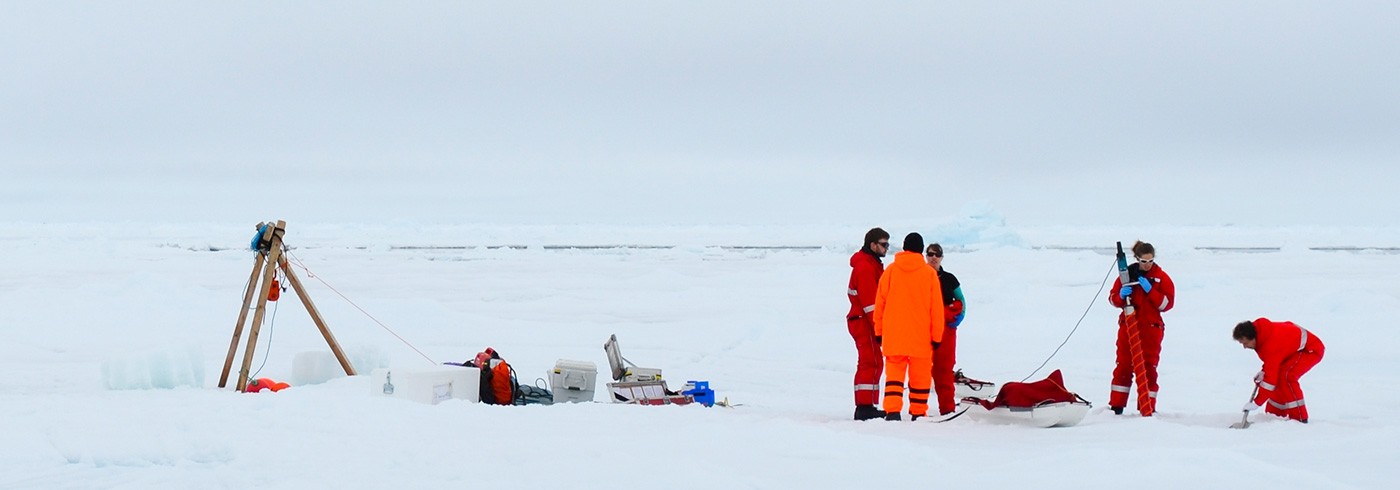The expedition consists of two legs, taking place southwest of the Nansen Basin and over the north Barents Sea shelf slope.
The aim of the marine part of the expedition is to investigate how the population of polar cod (Boreogadus saida) in this part of the Arctic is affected by the observed reduction of the sea ice. Polar cod serves as a staple food for seals and seabirds in the Arctic Ocean and is an ecological key species in the Arctic ecosystem. Polar cod use sea ice for protection from predators, as feeding habitat, and as a place to spawn in winter.
During PS106, multidisciplinary methods will be used to investigate the distribution of polar cod and its food, in parallel with measurements of the physical and biogeochemical conditions of the ocean and sea ice. The measurements will be carried out with a variety of nets and instruments, both from the ship and on the ice.
Ocean conditions in this area of the Arctic are characterised by the relatively warm Atlantic water flowing into the Arctic along the continental shelf. The oceanographic measurements aim to link the hydrographic conditions with the vertical distribution of particles and the vertical migration and positioning of zooplankton (Leg 1). During Leg 2, samples will be collected for age analysis of the Atlantic water, and eight bottom landers will be deployed on the continental slope for two years of detailed measurements of temperature variations.
Leg 1, 24 May–21 June
Chief Scientist (PASCAL)
Andreas Macke
Leibniz Institute for Tropospheric Research
Swedish participants, physical Oceanography
Anna Nikolopoulos
AquaBiota Water Research
Torsten Linders
Institutionen för marina vetenskaper, Göteborgs universitet
Leg 2, 23 June–23 July
Chief Scientist (SiPCA)
Hauke Flores
Polar Biological Oceanography, Alfred-Wegener-Institut
Swedish participants, physical oceanography
Céline Heuzé
Department of Marine Sciences, University of Gothenburg
Elin Andrée
Department of Marine Sciences, University of Gothenburg
Sara Sahlin
Department of Marine Sciences, University of Gothenburg

